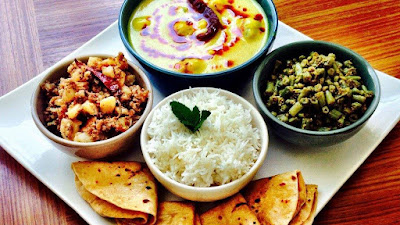Veganism and Religion
not vegetarians in their diet [2] and were eating meat and even beef. They performed rituals with animal sacrifice including that of cows. However the Buddhist monks went one up against brahmins in giving up beef. As cow and ox were particularly useful in an agrarian economy, giving up beef and their sacrifice appealed to the masses and Buddhism became the religion of the common man. Further, with the rise in popularity of Buddhism, Hindu brahmins were displaced from the top of the social hierarchy. To gain back their position in social strata, the brahmins not only gave up animal sacrifice and beef but they became vegetarians as an act of one-upmanship. Following this, other Hindu castes and communities that considered themselves on par with brahmins also turned vegetarians. Thus now around 30% of Indians are vegetarians.
This struggle for social power and respect between different religions, castes and communities that led to the widespread adoption of vegetarianism give us an effective method to instrument large scale societal change by nudging people to adopt veganism and thus in effect saving our planet. I suggest we should focus our efforts to engage with religious heads of various communities to convince them of the benefits of veganism for health, fitness, and planet. Chances of success are less but even if few communities convert they set the ball rolling and the struggle for societal power will ensure a widespread adoption of veganism. If we fail to create such an avalanche effect then at least there will be some success in terms of adoption due to the public engagement.
References:
- Impact of animal farming on our planet
http://paradoxsolutions.blogspot.com/2019/06/2026-holocaust-of-wild-animals.html
- Why did the Hindu brahmins become vegetarian? www.thehindu.com/books/article30208983.ece


Comments
Post a Comment